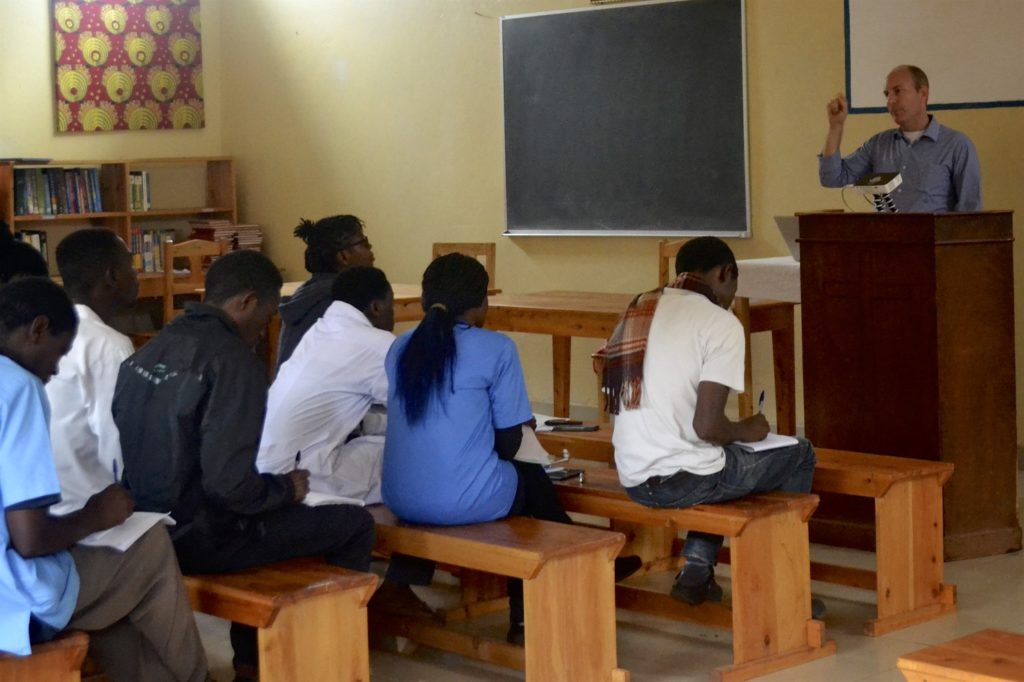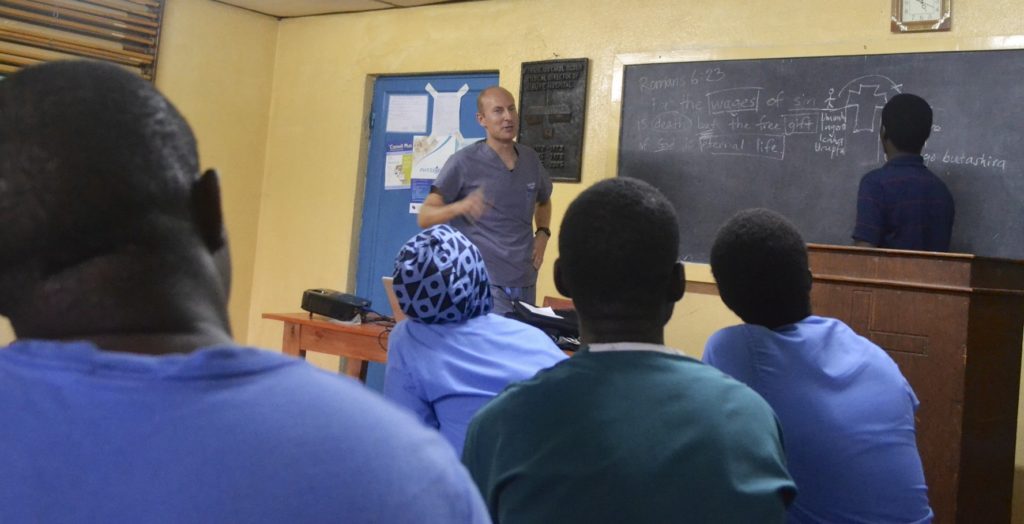
by Carlan
(This post was written just over a month ago but never made it to publication. It still very much describes my experience here.)
I love being a professor. Actually, that statement is too narrow. I love being a teacher.
There’s the selfish part. Feeling like you know one subject more thoroughly than another is nice. The pride that rises up when a student asks a question and you find exactly the right way to explain it. The respect you receive from others.
Though I would have to say, for each of those, my experience as a med school professor in Burundi gives counter-examples. Emergency medicine is intrinsically general. In residency one professor used to joke that we knew “the first 15 minutes of every specialty” but little beyond that. The majority of questions posed to this professor are not met with sparkling illustrations and inspired syntheses but with fumbling attempts to cobble together the French vocabulary I have to explain a concept that exists in my mind only in English. And when you say something off-handed that turns out to be a cultural faux pas and offend all of your students simultaneously without knowing it for a week…well, let’s just say that “respected professor glow” disappears.
In the last few weeks I’ve experienced all of the above while preparing and teaching a course on Traumatology. Every career and every job has its ups and downs. Everyone starts out incompetent in their job and builds that competence over years of making and learning from mistakes. Yet I find that the stresses and strains of researching and writing curriculum and diffusing those lessons in the clinical and classroom contexts resonates with something in me. Watching students who struggle to put disparate observations into a larger schema finally “get it” when you ask them the right question to unlock their own curiosity and logic is the unique privilege of teachers. Seeing your students acquire competency more quickly than you did carries no spite or jealousy but joy and a vicarious sense of accomplishment.
Yet what I cherish most is not building knowledge or skills into my students. That is not the best part.
These students come from various walks of life. Some are the children of rural villagers whose whole communities have sacrificed to send one child to university. Others have had the advantages of excellent primary and preparatory schools and educated parents. Some are local and some are from neighboring countries. They are atheist, Catholic, Muslim, Protestant, and a host of other worldview backgrounds that I do not even always know. They have different natural aptitudes and varying degrees of discipline or drive. They are different characters.
And that is the best and hardest part of being a professor. Teachers carry a responsibility to shape the character of their students. Will my pupils have better character because of their time with me? How can I reach in and influence their hearts? How do I prepare a curriculum for that?
In Matthew 23:8-12, in the midst of a scorching rebuke of the pastors and professors of His time, Jesus tucks these gems into the discourse.
“But you are not to be called rabbi, for you have one teacher, and you are all brothers. And call no man your father on earth, for you have one Father, who is in heaven. Neither be called instructors, for you have one instructor, the Christ. The greatest among you shall be your servant. Whoever exalts himself will be humbled, and whoever humbles himself will be exalted.”
I’ve been reading the Bible as a Christian for over 20 years. I’ve read through the Gospel of Matthew unnumbered times in the course of those years. I remember the “rabbi” part. I remember the “father” part. But somehow that “instructor” clause escaped my notice until last week when I was in the midst of preparing and teaching the traumatology course.
It turns out that the best and hardest part of my job just got better and harder. I am supposed to have good character. I am to be humble. Patient love will need to characterize my preparations and interactions. I’m also going to need to drop my title.
BUT…look at the positive of what Jesus said. We have a teacher. We have a Father. Christ, the Promised One, is our instructor. !!!
Somehow the way to be an effective and productive professor just joined the pathway to being a good anything else : point self and others to Jesus.
